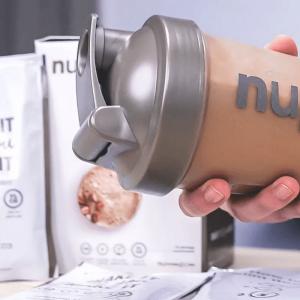Statistics say that more than 50% of pregnant women take prescribed and non-prescribed drugs, use social drugs (such as cigarettes and alcohol) or illicit drugs, at some point during pregnancy. That is why it is recommended that before the administration of any kind of medicine during pregnancy, there should be a discussion with the attending physician, related to the benefits and risks that come with the administration of a certain type of treatment. Any kind of drug, be it social or illicit, as well as a large part of medicines affect pregnancy. They pass through the placenta, just as the oxygen and nutrients necessary for the growth and development of the fetus pass.
What are the most dangerous substances in pregnancy and what effects does their consumption produce?
Among all existing substances, the most dangerous for the mother and the future fetus are: nicotine, alcohol, coffee, illegal drugs and aspartame.
Smoking during pregnancy
A cigarette contains over 3,000 toxic substances, 40 of which are carcinogenic. However, only 20% of pregnant women can quit smoking during pregnancy. The consequences of smoking during pregnancy are:
- restriction of intrauterine growth of the fetus: the more the woman smokes during pregnancy, the less the baby will weigh at birth. By comparison, it will have 200 grams less than the baby of non-smoking mothers.
- sudden infant death syndrome
- placenta previa (abnormally located)
- premature detachment of the normally inserted placenta
- premature rupture of membranes
- premature birth
- uterine infections
- abortion
- intrauterine death
In addition to these risks, children born to smoking mothers can also develop heart and brain defects, as well as deficiencies in physical and intellectual development and behavioral problems. To protect you, as well as your future babies, it is recommended to quit smoking and avoid passive smoking.
Alcohol in pregnancy
Alcohol consumption during pregnancy is the main cause of fetal malformations, therefore complete avoidance of alcohol is recommended, to eliminate any kind of risk from this point of view.
- Double risk of abortion, especially if alcohol is consumed in large quantities;
- Low birth weight;
- Newborns cannot suckle and have a high risk of dying after birth.
The greatest risk of alcohol consumption during pregnancy is the occurrence of fetal alcohol syndrome.
It leads to inadequate fetal growth, insufficient brain growth (small head), heart malformations, intellectual and behavioral problems.
Coffee in pregnancy
Even if it has a lower level of risk, coffee consumption can also affect pregnancy. This depends a lot on the amount of coffee (products containing caffeine) consumed during a day. For example, one cup of coffee a day does not affect the fetus. At the opposite pole, consumption of more than 7 cups of coffee can lead to sudden death, premature birth or abortion, according to some studies. What must be remembered is the fact that this substance, caffeine, is a stimulant that crosses the placenta to the fetus, therefore it is recommended to consume it in moderation.
Illicit drugs in pregnancy
Drugs, especially those from the opioid category, can lead to serious complications in pregnancy, with effects on the fetus. Injecting drugs increases the risk of infections that can affect or be transmitted to the fetus, such as hepatitis and sexually transmitted diseases. Amphetamines: cause malformations of the heart and insufficient growth of the fetus. Cocaine: causes abortion, fetal growth restriction, premature birth, intrauterine death, malformations of the brain, spine, urinary tract or bones. Synthetic drugs , including methadone, mescaline, LSD 25, amphetamine, ecstasy lead to the sudden death of the intrauterine fetus, premature detachment of the placenta, fetal defects; Hallucinogens: cause abortion, premature birth, abstinence syndrome of the newborn. The most common risks related to drug use during pregnancy are abortion, abnormal presentation of the fetus, premature birth, low birth weight and fetal malformations.
Aspartame in pregnancy
Aspartame is an artificial sweetener, also contained in food and drinks. Consumed in small quantities, it is safe for the future mother and fetus. Therefore, pregnant women should not consume more than one liter of juice per day, and women with phenylketonuria should not consume aspartame at all.
Phenylketonuria is a serious genetic disease, caused by a disorder in the metabolism of phenylalanine, an amino acid present in food. This disease affects one newborn in 16,000 and is responsible, if not treated, for the appearance of mental retardation.
In conclusion, the consumption of the 5 harmful substances can affect the fetus in several ways:
- They can directly affect the fetus, leading to defects, fetal malformations and death.
- They can affect the function of the placenta, causing vasoconstriction and reducing the supply of blood with oxygen and nutrients from the mother to the fetus.
- They can cause strong uterine contractions, decrease blood flow, cause premature birth or abortion.
- They can indirectly affect the fetus, by lowering the blood pressure of the mother and blood circulation in the placenta.
The way a drug affects the fetus varies depending on: the stage of development of the fetus, the strength and dose of the drug, as well as the mother's genetic reaction to the drug.







